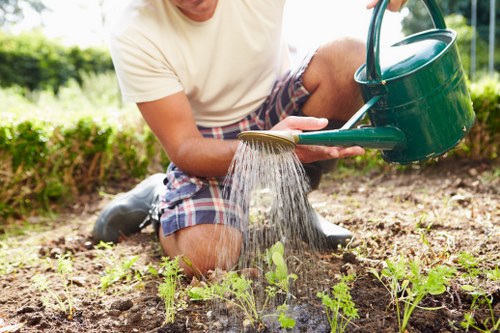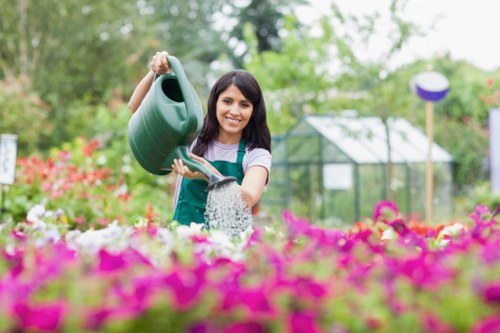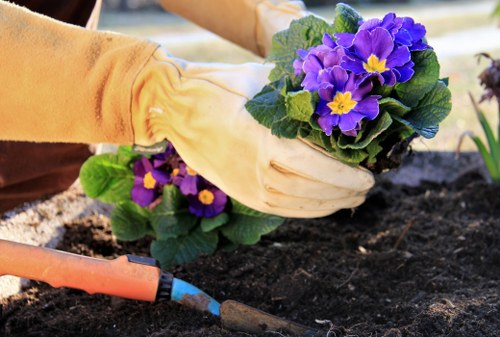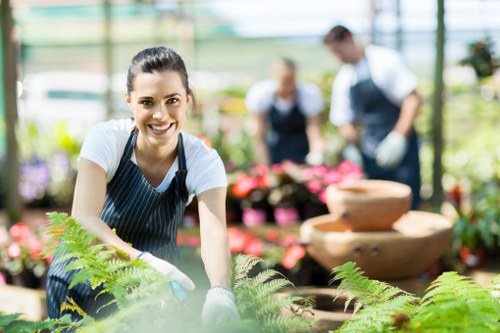Garden Maintenance The Hale: Nurturing Nature's Splendor

Garden Maintenance The Hale is a passion that marries the art of nature with modern technique. In this article, we explore the essential practices that help maintain a garden that is both vibrant and sustainable. Here, we dive into strategies ranging from soil care to seasonal planting, ensuring that every gardener – whether novice or experienced – can create a breathtaking green space.
When you commit to garden maintenance in The Hale, you're not only investing in a beautiful space but also in the enduring health of your plants. A well-maintained garden serves as a sanctuary for local wildlife, offers fresh produce, and provides solace to those who need an escape. Every task is performed with care and mindfulness towards nature, reflecting our values of sustainability and compassion.
In this guide, every aspect of garden maintenance is treated with importance. With practical tips and clear language, we aim to empower you with the knowledge needed to cultivate a healthy garden. This article mixes expert advice, local insights, and step-by-step instructions to help you transform your garden into a natural masterpiece.
Why Garden Maintenance is Important

Effective garden care promotes strong plant growth and prevents weed infestation. Whether dealing with overgrown shrubs or dry, cracked soil, regular maintenance ensures that each component of your garden works in harmony. Attention to detail in tasks such as pruning, mulching, and watering keeps plants resilient against pests and disease.
Good garden maintenance also contributes to energy conservation and a low-carbon lifestyle. By choosing organic fertilizers and water-saving techniques, you help reduce chemical runoff and preserve the natural ecosystem. In addition, maintaining a garden on a regular schedule prevents the overwhelming task of restoring a neglected space.
Moreover, a garden reflects your commitment to sustainability and community well-being. When you invest time in garden care, you create a peaceful retreat that benefits both mental and physical health. The transformation of a neglected patch into a flourishing oasis is a fulfillment that resonates with gardeners in every community.
Planning and Techniques for a Lush Garden

Planning is the backbone of successful garden maintenance. Start by assessing your garden’s specific needs, including soil quality, sunlight exposure, and water availability. Creating a maintenance schedule that covers daily, weekly, and seasonal tasks ensures that no area is overlooked. A well-organized plan allows for a balanced approach to fertilizing, trimming, and pest control.
Consider the following steps when organizing your garden maintenance tasks:
- Soil preparation: Test and amend the soil to achieve optimal pH levels.
- Water management: Install drip systems or rainwater harvesters to keep your garden hydrated.
- Weeding: Remove invasive plants early to allow native plants to thrive.
- Pruning: Regularly trim and shape plants to promote even growth.
Modern techniques such as organic pest control and companion planting can elevate your garden care routine. Over time, these practices contribute significantly to a well-balanced ecosystem, inviting beneficial insects and birds to become natural allies in your garden’s health journey.
Seasonal Garden Maintenance and Local Considerations

In The Hale, understanding the rhythm of the seasons is key to effective garden maintenance. Each season brings its own challenges and rewards. Spring is the time of new beginnings, ideal for planting new seeds and refreshing the soil. Summer requires vigilant watering and pest control as the heat intensifies, while autumn is perfect for clearing dead leaves and preparing the soil for winter rest.
During the winter months, maintain a regular inspection schedule to protect perennials from frost and ensure that your garden remains aesthetically pleasing. Mulching plays a critical role here, as it helps regulate soil temperature and retains moisture during colder periods. Seasonal planning lets you anticipate these changes and adapt your techniques accordingly.
Localized garden maintenance practices in The Hale emphasize the integration of indigenous plant species that are naturally adapted to the local climate. This strategic decision not only lowers maintenance efforts but also encourages biodiversity. Community programs and local nurseries in The Hale provide invaluable resources and expertise for gardeners seeking to harmonize traditional practices with modern eco-friendly techniques.
Garden Maintenance in The Hale and Nearby Areas

The Hale has emerged as a center for quality garden care, attracting attention from both residents and visitors. Garden maintenance in The Hale is more than a routine – it is a celebration of nature. Local experts emphasize sustainable practices that blend modern technology with timeless horticultural wisdom. The lush gardens here offer a glimpse into the beauty that results from consistent and caring maintenance.
Garden enthusiasts from surrounding areas often seek inspiration from The Hale’s raising standards in landscaping and garden care. This area is renowned for its clean, well-organized green spaces that encourage community gatherings and outdoor activities. By sharing success stories and practical tips, The Hale helps set a benchmark for garden maintenance across the region.
In addition, The Hale collaborates with gardeners in neighboring communities to promote local workshops on composting, water conservation, and organic fertilization. These cooperative efforts extend the impact of garden maintenance practices and create a network of ecological stewardship. The shared commitment to nurturing our gardens resonates throughout the region, reaffirming the value of meticulous upkeep and community involvement.
Exploring Nearby Areas with Exceptional Garden Features
Residents of The Hale are just a short drive away from several communities that share a passion for vibrant outdoor spaces. Below is a list of nearby areas and a brief description of what makes each unique:
- Green Meadows: Known for its vast lawns and community gardens, Green Meadows provides a perfect example of organized suburban landscaping.
- River Park: Nestled alongside a graceful river, this area features gardens that thrive on ample natural moisture.
- Sunnyvale: With abundant sunlight, Sunnyvale gardens are vibrant and full of life, ideal for sun-loving plants.
- Oak Ridge: Characterized by its rich, loamy soil and mature trees, Oak Ridge gardens exude a timeless rustic charm.
- Pine Hill: Its elevated position offers a cool breeze and well-drained soil, making it ideal for rock gardens and alpine plants.
- Lakeside: This area benefits from a microclimate that supports diverse plant species, creating eclectic garden designs.
- Elm Grove: Emphasizing community gardens and organic practices, Elm Grove is a hub for eco-friendly gardening techniques.
- Maplewood: Renowned for its seasonal foliage, Maplewood gardens blend vibrant colors with natural landscaping.
- Cedar Crest: With a focus on native species, Cedar Crest exemplifies conservation and respectful land use.
- Willow Creek: The soothing sounds of water mark this area, where gardens are designed with relaxation and natural beauty in mind.
- Briarwood: An area that values traditional gardening methods, Briarwood creates charming, storybook landscapes.
- Stonebridge: This community is known for its innovative garden designs that balance modern trends with classic techniques.
- Meadowbrook: With its sprawling flower beds and lush hedges, Meadowbrook is a sanctuary for horticulture enthusiasts.
As you can see, the influence of Garden Maintenance The Hale extends far beyond its immediate borders. By learning from the diverse practices in these nearby areas, you can refine your own approach to garden care and contribute to a broader community of nature lovers.
Frequently Asked Questions
What is the best time to start garden maintenance?
The best time to start is in early spring when the weather is mild. This allows you to prepare the soil and plant essential herbs and flowers before the heat of summer sets in.
How often should I water my garden in The Hale?
Watering frequency depends on your garden's layout and plant types. Generally, an early morning watering session two to three times a week works well. Adjust based on rainfall and seasonal changes.
What organic fertilizers are recommended?
Organic options like compost, manure, and bone meal are excellent choices. These not only improve soil health but also encourage robust plant growth without harmful chemicals.
How do I deal with pests naturally?
Implement companion planting and natural predators such as ladybugs. Additionally, neem oil and garlic sprays are effective in managing many common garden pests.
Can I transform a neglected garden into a thriving space?
Absolutely. With consistent maintenance, proper planning, and the right mix of techniques, even the most neglected garden can be revived into a vibrant, sustainable ecosystem.

